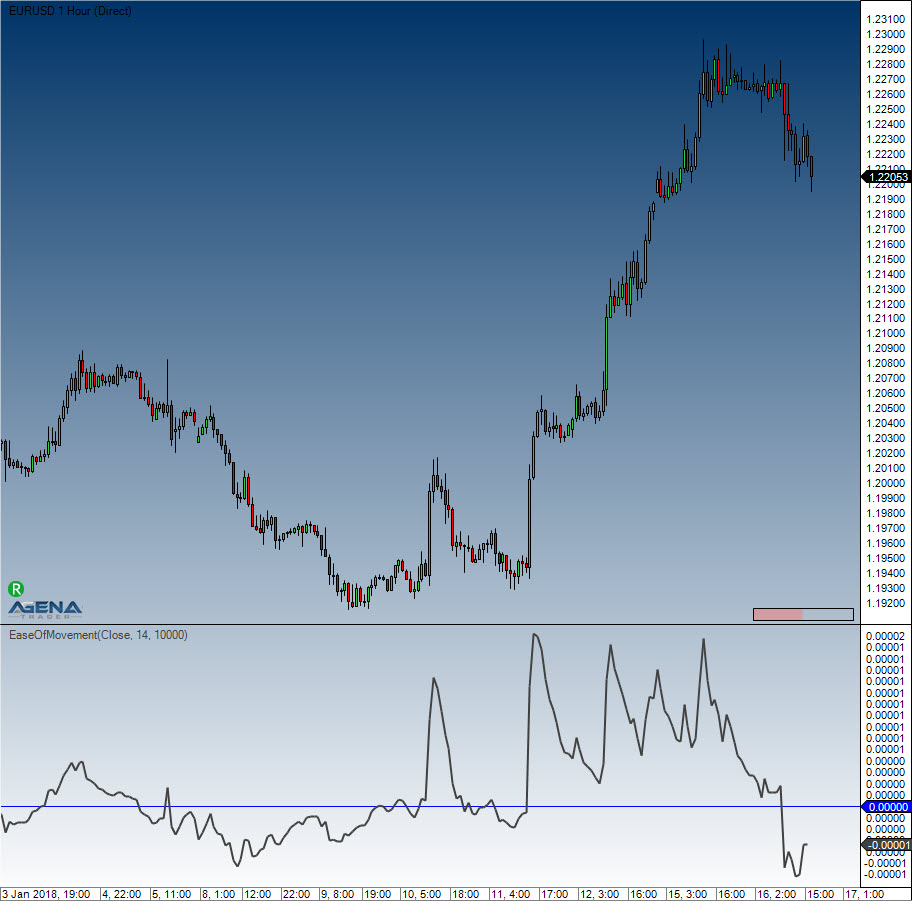Ease of Movement (EOM)
Description
Interpretation
Further information
Usage
EaseOfMovement(int smoothing, int volDivisor)
EaseOfMovement(IDataSeries inSeries, int smoothing, int volDivisor)
EaseOfMovement(int smoothing, int volDivisor)[int barsAgo]
EaseOfMovement(IDataSeries inSeries, int smoothing, int volDivisor)[int barsAgo]Return value
Parameters
Visualization

Calculation
Example
Last updated